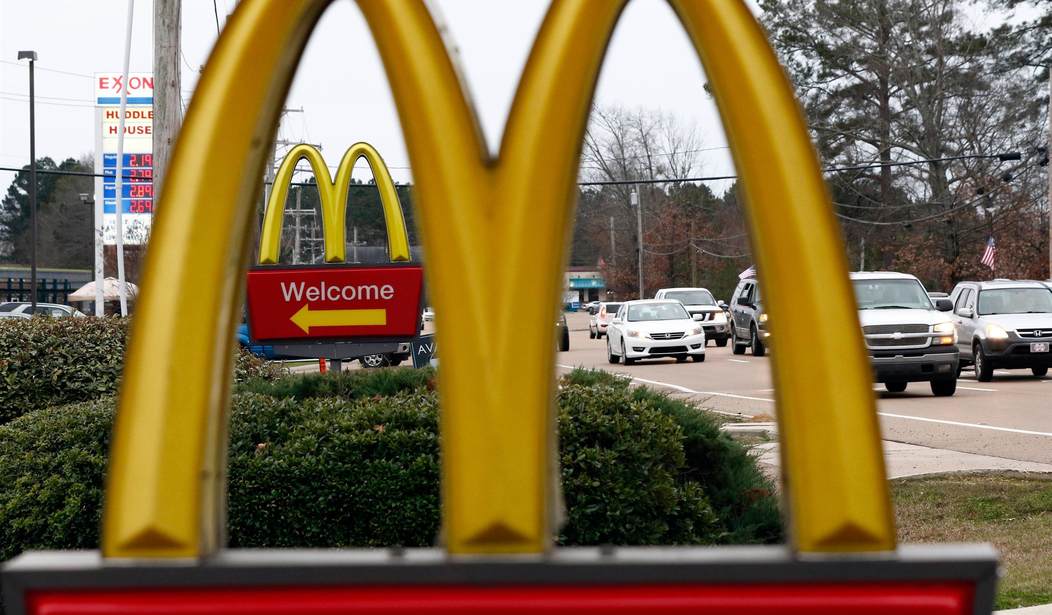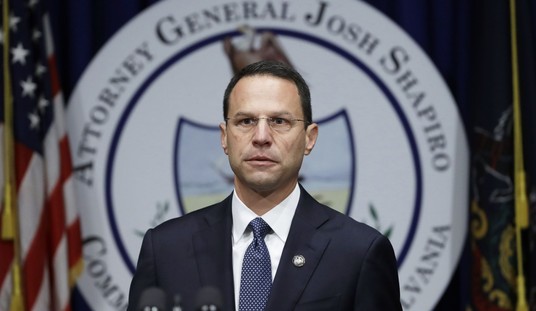Needless to say, I don’t often write about such things as healthy diets and lifestyles — which is not to say I don’t adhere to both — but when the World Health Organization calls on member governments to pass strict limitations on what I can eat and how much of it, it gets my attention — and should get yours, as well.
Again, my stance, particularly in this case, shouldn’t be confused with opposition to the current culprit in the spotlight: salt. Specifically, excessive consumption of salt. While I agree in principle with the notion, I don’t agree that it’s the job of the federal government to look after me and take steps to force me to eat less salt.
Look, in a “survival of the fittest” kinda way, if it takes the federal government to get you to cut back on salt consumption, it makes zero difference how much salt is contained in processed food; you’re gonna get out your big container of Morton’s and knock yourself out, or toss a packet or two of salt on your already-salty-as-hell McDonald’s french fries or Quarter Pounders with Cheese.
Speaking of morbidly obese, irrelevant independent filmmaker Michael Moore, the dude is going to salt the hell out of everything he eats and he doesn’t give a damn about what the rest of us think about it. (Apologies for the digression; I just hate to miss an opportunity to take a shot at the ever-sanctimonious Moore.)
By contrast, if you’re concerned with sodium content, carbs, corn oil, and such, you don’t need the government to regulate your diet or tell you what to eat. Make sense? Of course, it does. We are what and how much we eat, America— and not what we don’t. In other words, get disciplined or go home.
Anyway, according to the World Health Organization, seven million people could die of diseases linked to excessive salt consumption before the end of the decade unless governments immediately pass tighter restrictions on salt. (Biden labels salt “assault salt” in 3… 2… 1…)
Dr. Shin Young-soo, WHO Regional Director for the Western Pacific, said:
Among non-communicable risk factors, high blood pressure is called the silent killer. It already kills 9.4 million each year globally and if we do nothing about it today, it will kill 1 billion people prematurely in this century.
Here’s more, via WHO:
Research shows that there is a direct relationship between sodium consumption and blood pressure, for example, increased sodium consumption is associated with increased blood pressure. WHO recommends that adults consume less than 5g of salt daily or about 1 teaspoon, which is equivalent to 2g of sodium.
Unfortunately, most people unknowingly consume 9-12g of salt per day, which is twice the recommended limit. This puts millions at risk of cardiovascular disease. Reducing salt consumption can save lives by helping to keep blood pressure within the normal range and preventing early death from heart attack or stroke.
“Excessive sodium intake is the top risk factor for an unhealthy diet, and it is responsible for 1.8 million deaths each year,” said Francesco Branca, director of the WHO’s Department of Nutrition for Health and Development. Eating too much salt is one of the causes of cardiovascular disease, which kills an estimated 17.9 million people each year, according to WHO.
Hidden Salt
Most healthy eaters are fully aware that hidden salt in processed foods is the main culprit. Via WHO:
Tinned fish and meat, instant noodles, chips, bread, and soup stock cubes are among the most commonly consumed processed foods. These are usually cheap, widely available, and do not require refrigeration, but are high in sodium. Salt is also added during cooking or while eating as condiments such as table salt, fish sauce, and soy sauce.
In restaurants and fast food outlets, people have no control over the amount of salt added to their dishes. Given the increasing consumption of processed and fast foods, coupled with shifting tastes and diets, consumers need to be aware of the salt content of food to help them make informed choices and demand healthier low-salt options.
I agree. But I’d also argue that people who live on diets of processed food and unhealthy savory snacks by and large don’t give a damn about sodium content. Even worse, untold numbers of “salt lovers” exist who can’t get enough of the stuff.
I went to lunch with a friend in Minnesota, some years back, which unfortunately happened to be Burger King. While everything in the place was already salty as hell, my bud took off the top bun and relentlessly salted the burger (with salty cheese). Then, after he took each bite, he poured salt into the “bite” area. Not sure whatever became of the guy, but the images remain with me.
So, spoiler: No number of government warnings and restrictions on salt intake would’ve stopped that guy from eating so much salt.
Nonetheless, Branca said governments could save many lives by introducing mandatory limits on the amount of salt the food industry is permitted to add to processed foods, while adding that the salt “crisis” accounts for the majority of sodium consumed by most Americans, rather than salt sprinkled on food in the kitchen.
“This is really something that doesn’t cost money to anybody,” Branca said. “It’s a simple intervention, but it’s incredibly effective.”
(My probably-late buddy would no doubt strongly disagree.)
As reported by the Washington Post, many other health organizations — including the American Heart Association, the American College of Cardiology, and the National Academies of Sciences, Engineering, and Medicine — also recommend that consumers dramatically reduce their sodium intake. That position is based on decades of scientific evidence (including analyses of hundreds of published studies that underscore sodium’s health dangers) that remains unchanged despite several studies in recent years that have challenged it.
Meanwhile, according to WaPo, the World Health Organization is hoping to reduce global salt intake by 30 percent from 2013 levels, a 12-year target agreed to by all 194 of its member states at the time — which no member is on track to meet. Branca said he was considering extending the target to 2030.
The Bottom Line
Healthy targets are good. Forced government oversight and regulation, not so much.














Join the conversation as a VIP Member